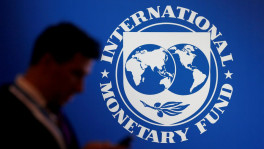The floor price dilemma
Foreign institutional investors are suffering from illiquidity most, as many of them have been in a selling mood since the first quarter of 2019

Capital market regulators in Bangladesh seem to have never faced such a dilemma, what they are feeling about the existing floor price mechanism imposed in March, in the wake of the Covid-19 pandemic.
In the current adverse fundamental scenario with a negative outlook alongside an even more extreme crisis of fund inflow, if the market is allowed to act free, thousands of investment accounts would collapse as they are already in margin calls and unable to honour those, believe market experts.
On the other hand, the market is becoming extremely illiquid as the floor price method is not allowing share prices to go below a certain level, for which most of the stocks are failing to attract buyers. Less matching among buyers and sellers brought daily turnover at the Dhaka Stock Exchange (DSE) down to a 13-year low on Thursday.
At the closing session of the week, the premier bourse has witnessed less than Tk43 crore turnover - slightly above the one-tenth of last year's daily turnover.
Floor traders informed The Business Standard that only a few selective stocks are actively traded in the emergency price support environment which is too inadequate to offer institutional funds to take an exit from a stock.
Foreign institutional investors are suffering from illiquidity most, as many of them have been in a selling mood since the first quarter of 2019. On top of the already negative economic outlook, the coronavirus pandemic and its potential impacts on fundamentals seem to accelerate their cry for exits.
Following a unique 66-day shutdown, the stock market in Bangladesh reopened last Sunday. Except for the first session, the market observed sellers' dominance over the week - mainly the foreigners' sales.
The divided stakeholders
The Business Standard has talked to a wide range of stakeholders dealing with equity research, brokerage services to local and foreign investors, investment banking, and asset management to learn about the field reality.
Small investors and local institutes - suffering for their imprudent risk management over the years and on the verge of forced selling in cases of not responding to margin calls - are praying so that the floor price remains until the economic headwinds during the pandemic are over.
Their brokers and leverage providers are also opining for the protection as the withdrawal of the floor might hit their balance sheets too.
A shareholder said, "The unprecedented situation is an emergency one. Everyone has to take pains. And why not the exiting investors? The only inconvenience floor pricing has brought for them is waiting a bit more to sell the same shares."
On the other hand, the ongoing price control measure grossly contradicts the idea of the free market, according to two brokerage managers dealing with foreign clients.
One of them said, "Bangladesh in recent years has absorbed reputation loss among international fund managers that began with listed mutual funds' tenure extension, our almost constant exchange rate while peers preferred currency devaluation, regulatory tussle in the business of Grameenphone, deteriorating health of banking industry, and most recently the stock exchanges' two months-long closure with zero price-sensitive information dissemination online."
"Liquidity risk" is the evil phrase they are tagging with Bangladesh in recent weeks when the country needs foreign investments for the growth in the economy and also in the financial markets, he added.
Differing him, another stockbroker at a top-10 firm serving mostly local clients with a large number of leveraged accounts, said, "Bangladesh is a frontier market, and fund managers at the world's top financial centres know the liquidity risk here very well. In the days of maximum liquidity too, they have to wait for weeks to build or close a position in our stock market gradually. They just need to wait a bit more."
He fears that floor price withdrawal before situation restores might merely cause damage to the indebted stock investors due to forced selling. And some quarters are waiting to see the market go further down and grab the assets at a lower price.
'Bangladesh looks unique again'
Covid-19 has appeared as an event that triggered the stock market to fall across the world, and the rationale makes sense when the economies, industries and majority companies are facing worse conditions.
Bangladesh is nothing different, of course.
But, "There is a big difference between Bangladesh and other markets. Surprisingly no one is talking about it," said the local broker.
He explained, most of the pandemic-hit markets had been hovering near their historic high level, or at a merely corrected price level. Stock markets in the United States, Europe, India, or even in Pakistan - all came through a prosperous journey after the global financial crisis a decade ago.
Investors in Bangladesh are yet to heal the wounds from the 2010-11 market crash as the overall market is still depressed and gradually deteriorating.
DSEX, the broad-based index at the DSE, closed at 3,953 points - 0.25 percent down from the previous day. The almost equivalent predecessor index went as high as 9,000 in 2010.
"You can question investors' approach to risks, but their portfolio statements must make you understand how bad shape they are turning day by day."
Now a 200-point fall in core index with a further downside risk means a several hundred or even thousand accounts to collapse, investors to go broke, and market assets to erode.
"I support the price floor for the sake of unsophisticated investors. No market has emerged to today's level with zero disruption," he sounds desperate.
In contrast to the other side, he opines, "Without a price discovery mechanism, you can only defer the reflection of a deteriorated situation."
Pakistan had imposed a floor in their stock indices during the global financial crisis in 2008 that prevented further slide after falling 43 percent within four months. Individual shares there were free to move that offered investors a room for entry and exit way more than it is here now.
Karachi Stock Exchange had withdrawn the floor within 105 days and immediately later absorbed the pending effect that pushed the index further over one-third down from the floor within two months, they reminded.
"You cannot avert the consequence, today or tomorrow," said an analyst within one of their team.
The political commitment and regulator's dilemma
The broad-based index at the Dhaka Stock Exchange fell more than 25 percent in 2018 and 2019.
It was falling more sharply at the beginning of this year, and the prime minister's office had come up to give the market a hand by ordering increasing fund injection from banks along with some other measures.
General investors and the struggling local market entities appreciated the political commitment to support them, but they are yet to be confident that banks can or will opt in.
The Bangladesh Securities and Exchange Commission has recently had all its new top officials who are intensively hearing from stakeholders.
Professor Shibli Rubayat-Ul-Islam, the BSEC chairman, told The Business Standard that it is a complicated situation, at least for the time being.
"We are determined to save small investors. On the other hand, the market also needs better liquidity," he said.
Being asked about the floor price, he said, "We are trying to engage all the stakeholders, potential buyers, to add to demand at the stock exchanges. It seems, before that withdrawal of the floor, it would harm many. Let us work on that."


 Keep updated, follow The Business Standard's Google news channel
Keep updated, follow The Business Standard's Google news channel
















